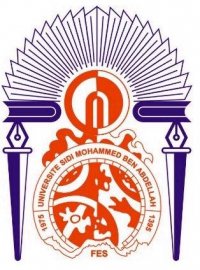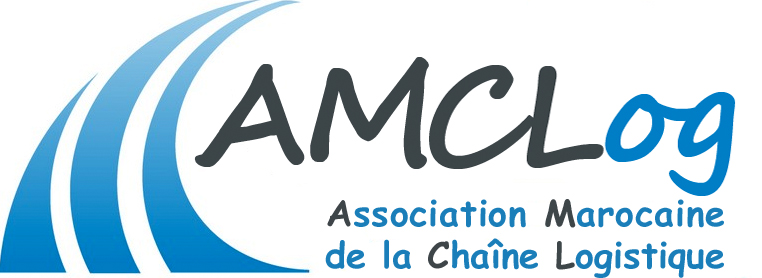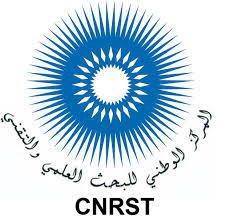
 |
 |
 |
 |
 |
 |
 |
 |
 |
 |
 |
 |
Plenary Sessions


The development of logistics is essential to challenge economic stakes and to enhance economic competitiveness. For this purpose, Morocco has developed a strategy for the development of logistic competitiveness in order to reduce the ratio of logistics costs to GDP from 20% to 15%, to accelerate the GDP growth from 3 to 5 pointsand to contribute to sustainable development of the country, through the reduction of CO2 emissions by 35% and the decongestion of roads and towns. This intervention will be an opportunity to present an overview on the challenges of logistics, emphasize the importance of logistics performance in economic growth, and highlight the measures taken in Morocco to promote the logistics.
Biography
Born in 1964 in Tangier, Mohamed Najib Boulif holds a Masters in Business Administration and a Masters in Econometrics from the University of Dijon ( France , 1985). He is also laureate of the French Institute of Petroleum (1986). He holds a Doctoral Degree from the University of Paris II and the Higher National School of Petroleum and Engines in France (1989). He also holds a PHD in economics from the University Sidi Mohamed Ben Abdallah in Fez in 1996. He is a professor of Economics at the University of Oujda, then at the University of Tangier since 1991.
Boulif has been a Deputy in the House of Representatives since 2002. He is member of several national and international organizations (the Parliamentary Assembly of the Francophonie, World Forum for Islamic Parliamentary Representatives, Al Quds International Forum, Global Organization of Parliamentarians Against Corruption ). He has authored many books on Islamic finance and Micro-finance
He was Deputy Minister for General Affairs and Governance from 2012 to 2013. Then, Deputy Minister of Transport since October 2013.


City Logistics is an innovative concept where freight transportation within dense and sensitive urban areas is considered from a systemic point of view as an integrated "logistics" system, with the goal of simultaneously reducing the footprint of freight transportation on the city (congestion, pollution, etc.) and providing an efficient transportation system sustaining its economic development. Cooperation among stakeholders, consolidation of loads of different stakeholders within the same vehicles, and the optimization of the integrated system are the main pillars of this field. A number of divers projects and system deployments have been undertaken around the world, and the pace of development of methods to evaluate and plan such systems is quickening. Many significant challenges still remain, however. We will first recall the main ideas and concepts of City Logistics and briefly survey the applications and scientific literature. We will then discuss a number of challenging issues in planning multi-tiered systems and present methodological developments aimed at addressing them.
Biography
Teodor Gabriel Crainic is Professor of Operations Research, Transportation, and Logistics in the School of Management of the University of Québec at Montreal, Canada. He is also senior scientist at CIRRELT, the Interuniversity Research Center for Enterprise Networks, Logistics and Transportation, and Director of its Intelligent Transportation Systems Laboratory. He received the 2006 Merit Award of the Canadian Operational Research Society and is a member of the Royal Society of Canada. The research interests of Professor Crainic are in network, integer, and combinatorial optimization, meta-heuristics, and parallel computing applied to the planning and management of complex systems, particularly in transportation and logistics. Major contributions targeted methods for national/regional planning, the design, scheduling, and operation management of consolidation-based carriers, intermodal terminal operators, and logistics networks, routing and scheduling, and Intelligent Transportation Systems.


Logistics is currently a key driver in a World that is really proceeding at different speed along time and in different geographic areas; due these reasons it emerge necessary to address the Logistics Shortfall as Opportunities to innovate. The presentation will address the use of innovative models for supporting design of new solution and dynamic management of logistics networks able to deal with the current world situation and with futre challenges.
BiographyAgostino G. Bruzzone began his engineering studies at the Italian Naval Academy with the Faculty of Pisa in 1984. After successfully completing this phase, he transferred to the University of Genoa where he earned his doctorship in Mechanical Engineering. Since 1991, he has taught "Theories and Techniques of Automatic Control" and in 1992 he has become a member of the industrial simulation work group at the ITIM University of Genoa. Currently he is Full Professor in DIPTEM, University of Genoa.
He has utilized extensively simulation techniques in harbor terminals, maritime trading and sailboat racing sectors.
He worked on research projects involving innovative modeling, AI techniques and DOE (design of Experiments); particular attention was focused on the application of Neural Networks, GAs and Fuzzy Logic to industrial plant problems using Simulation and Chaos Theory.
He has been actively involved in the scientific community from several years and served as Director of the McLeod Institute of Simulation Science (MISS), Associate Vice-President and Member of the Board of the SCS (Society for Modelling & Simulation International), President of the Liophant Simulation, President of Simulation Team VicePresident and Member of the Board of MIMOS (Movimento Italiano di Simulazione), Director and Vice Director of M&S Net, Industrial Relation Chair in SCS Europe, Italian Point of Contact for the ISAG (International Simulation Advisory Grouyp) and Sim-Serv.
He acquired extensive experience as a member of International Technical and Organization Committees (i.e. AI Application of IASTED, AI Conference, ESS, ESM, AMS, etc.) and as a General Coordinator of Scientific Initiatives (i.e. General Chair of Simulation in Industry Conference, "Summer Computer Simulation Conference", "International Mediterranean Modelling Multiconference" and Web Based Simulation Conference, Program Chair of the Workshop in Harbor and Logistics Modeling, Guest Editor for Special Issue of Harbor and Maritime Simulation and "Supply Chain Simulation" in Int.Journals, Member of the Editorial Board of Simulation, Program Chair of Engineering Application in WCSS and Track Chair for Manufacturing in SCSC ).
He has written more than 200 scientific papers in addition to technical and professional reports in partnerships with major companies (i.e. IBM, Fiat Group, Contship, Solvay) and agencies (i.e. NASA, European Defence Agency, NATO, National Center for Simulation, Italian MoD, Italian Navy, US Army).
As example, during 2000, he was involved in different Projects as Project Manager or Scientific Responsible such as: FLODAF (Fuzzy Logic Data Fusion Italian Navy), MASC (Modeling & Analysis for Satisfaction of Customers, COOP), DICOSAP (DIPTEM/COOP ERP Support & Applied Planning), LEM (Logistics Educational Module, Ford Motor Co., Boston College, Liophant Simulation Club), HLA University Outreach Program (DoD, Defense Modeling & Simulation Office, McLeod Institutes of Simulation Sciences), PUMA (Project for Ultimate Maintenance, Ansaldo Energia), WILD (Web Integrated Logistics Designer, MURST, Milan & Bari Polytechnic, Firenze/Napoli/L'Aquila/Salerno University, Piaggio Aero Industries, Salver, Plyform, SirioPanel, OMA, Geven, Magnaghi). In the same year he was involved, as international expert, in the development of NATO project NIAG SG60 (Simulation Based Design and Virtual Prototyping, NATO).
Currently Agostino Bruzzone is in charge as Director of the Technical Council of "SIMulation applications in Management, PLanning & forEcaSTing" for the Society of Computer Simulation International.
He is MITIM DIPTEM Genoa Director for the McLeod Institute of Simulation Science (an Institution with over 28 Centers distributed worldwide: Brazil, China, USA, UK, Italy, France, Germany, Canada, Spain etc.) and he is Director of M&S Net an International Network involving 34 Centers.
He is founder member and president of the Liophant Simulation and Simulation Team.
He is also and member of Who's Who, IEEE, IASTED, ANIMP, SCS, MIMOS etc. Currently he works in the Department of Industrial Production, Thermoenergy, Engineering and Mathematical Modelling (DIME, formerly DIPTEM, DIPEM, DIP and ITIM) at the University of Genoa as Full Professor. He is active in the field of simulator-based applications for industrial plants, developing new methodologies and intelligent system integration techniques.
He teaches Project Management and "Industrial Logistics at the University for students in the Mechanical Engineering (4th year), Management Engineering (4th year) and Logistics & Production Engineering (3rd year) degree courses; He teaches "Modelling & Simulation", "M&S for Biomedical System" and VV&A for the DIMS PhD Program (Doctorship in Integrated Mathematical Modelling and Simulation).
He is President of the MIPET (Master Program in Industrial Plant Engineering & Technologies - Master in Impiantistica Industriale e Grandi Impianti) of Genoa University. He is serving as M&S Project Leader for NATO STO Center for Maritime Research and Experimentation (CMRE).


The performance of supply chains is a major concern, which is studied by numerous researchers. Modeling and simulation approaches can greatly assist the analyst of these systems in understanding their complex dynamic behavior, so that decision makers can take better decision about their management. If several types of supply chains can be adequately modeled using discrete-event models, when the supply chain deals with numerous types of products, and high quantities, then this modeling world view can be not relevant. System Dynamic principles, introduced by Forester can turn out to be much more suited, in particular at tactical or strategic levels (macroscopic simulations), to take sustainability into consideration and to deal with certain human issues. The presentation will highlight its benefits for modeling the flow of products. A methodology, illustrated by case studies, will be introduced. Relevant research directions that can be addressed using systems dynamics will be highlighted.
Biography
Henri Pierreval is full professor at the French institute of mechanical engineering (IFMA) of Clermont-Ferrand in France and a researcher at the laboratory of computing, system modeling and optimization (LIMOS, UMR CNRS 6158). The modeling, simulation and optimization of such systems as manufacturing systems and supply chains are the main focuses of his research. He is the author or co-author of numerous articles in these areas, published in major international journals. He has been an invited professor in universities of several countries and has served as an expert for several national and international institutions. He has hold chair positions is several international conferences and is on the editorial board of well known international journals. He is involved in national and international research collaborations and in research collaborations with companies.
The 2nd International Conference on Logistics Operations Management - 2014
Luka design



